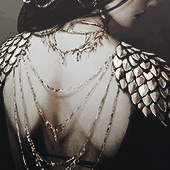sylvia.
sylvia.
I took a deep breath and listened to the old brag of my heart.
I am, I am, I am.
I am, I am, I am.


October 27, 1932.
Sylvia Plath was one of the most dynamic and admired poets of the 20th century. By the time she took her life at the age of 30, Plath already had a following in the literary community. In the ensuing years her work attracted the attention of a multitude of readers, who saw in her singular verse an attempt to catalogue despair, violent emotion, and obsession with death. In the New York Times Book Review, Joyce Carol Oates described Plath as “one of the most celebrated and controversial of postwar poets writing in English.” Intensely autobiographical, Plath’s poems explore her own mental anguish, her troubled marriage to fellow poet Ted Hughes, her unresolved conflicts with her parents, and her own vision of herself.
On the World Socialist web site, Margaret Rees observed, “Whether Plath wrote about nature, or about the social restrictions on individuals, she stripped away the polite veneer. She let her writing express elemental forces and primeval fears. In doing so, she laid bare the contradictions that tore apart appearance and hinted at some of the tensions hovering just beneath the surface of the American way of life in the post war period.” Oates put it more simply when she wrote that Plath’s best-known poems, “many of them written during the final, turbulent weeks of her life, read as if they’ve been chiseled, with a fine surgical instrument, out of arctic ice.” Plath has inspired countless readers and influenced many poets since her death in 1963.
In the New York Times Book Review, former US poet laureate Robert Pinsky wrote, “Thrashing, hyperactive, perpetually accelerated, the poems of Sylvia Plath catch the feeling of a profligate, hurt imagination, throwing off images and phrases with the energy of a runaway horse or a machine with its throttle stuck wide open. All the violence in her work returns to that violence of imagination, a frenzied brilliance and conviction.” Denis Donoghue made a similar observation, also in the New York Times Book Review: “Plath’s early poems, many of them, offered themselves for sacrifice, traning agony, ‘heart’s waste,’ into gestures and styles.” Donoghue added that “she showed what self-absorption makes possible in art, and the price that must be paid for it, in the art as clearly as in the death.” Dictionary of Literary Biography essayist Thomas McClanahan wrote, “At her most articulate, meditating on the nature of poetic inspiration, [Plath] is a controlled voice for cynicism, plainly delineating the boundaries of hope and reality. At her brutal best—and Plath is a brutal poet—she taps a source of power that transforms her poetic voice into a raving avenger of womanhood and innocence.”
Born in 1932 in Boston, Plath was the daughter of a German immigrant college professor, Otto Plath, and one of his students, Aurelia Schober. The poet’s early years were spent near the seashore, but her life changed abruptly when her father died in 1940. Some of her most vivid poems, including the well-known “Daddy,” concern her troubled relationship with her authoritarian father and her feelings of betrayal when he died. Financial circumstances forced the Plath family to move to Wellesley, Massachusetts, where Aurelia Plath taught advanced secretarial studies at Boston University. Sylvia Plath was a gifted student who had won numerous awards and had published stories and poetry in national magazines while still in her teens. She attended Smith College on scholarship and continued to excel, winning a Mademoiselle fiction contest one year and garnering a prestigious guest editorship of the magazine the following summer.
It was during her undergraduate years that Plath began to suffer the symptoms of severe depression that would ultimately lead to her death. In one of her journal entries, dated June 20, 1958, she wrote: “It is as if my life were magically run by two electric currents: joyous positive and despairing negative—whichever is running at the moment dominates my life, floods it.” This is an eloquent description of bipolar disorder, also known as manic depression, a very serious illness for which no genuinely effective medications were available during Plath’s lifetime. In August of 1953, at the age of 20, Plath attempted suicide by swallowing sleeping pills. She survived the attempt and was hospitalized, receiving treatment with electro-shock therapy. Her experiences of breakdown and recovery were later turned into fiction for her only published novel, The Bell Jar.
Having made a recovery, Plath returned to Smith for her degree. She earned a Fulbright grant to study at Cambridge University in England, and it was there that she met poet Ted Hughes. The two were married in 1956. Plath published two major works during her lifetime, The Bell Jar and a poetry volume titled The Colossus. Both received warm reviews. However, the end of her marriage in 1962 left Plath with two young children to care for and, after an intense burst of creativity that produced the poems in Ariel, she committed suicide by inhaling gas from a kitchen oven.
Timothy Materer wrote in the Dictionary of Literary Biography, “The critical reactions to both The Bell Jar and Ariel were inevitably influenced by the manner of Plath’s death at 30.” Hardly known outside poetry circles during her lifetime, Plath became in death more than she might have imagined. Donoghue, for one, stated, “I can’t recall feeling, in 1963, that Plath’s death proved her life authentic or indeed that proof was required. ... But I recall that Ariel was received as if it were a bracelet of bright hair about the bone, a relic more than a book.” Feminists portrayed Plath as a woman driven to madness by a domineering father, an unfaithful husband, and the demands that motherhood made on her genius. Some critics lauded her as a confessional poet whose work “spoke the hectic, uncontrolled things our conscience needed, or thought it needed,” to quote Donoghue. Largely on the strength of Ariel, Plath became one of the best-known female American poets of the 20th century.
On the World Socialist web site, Margaret Rees observed, “Whether Plath wrote about nature, or about the social restrictions on individuals, she stripped away the polite veneer. She let her writing express elemental forces and primeval fears. In doing so, she laid bare the contradictions that tore apart appearance and hinted at some of the tensions hovering just beneath the surface of the American way of life in the post war period.” Oates put it more simply when she wrote that Plath’s best-known poems, “many of them written during the final, turbulent weeks of her life, read as if they’ve been chiseled, with a fine surgical instrument, out of arctic ice.” Plath has inspired countless readers and influenced many poets since her death in 1963.
In the New York Times Book Review, former US poet laureate Robert Pinsky wrote, “Thrashing, hyperactive, perpetually accelerated, the poems of Sylvia Plath catch the feeling of a profligate, hurt imagination, throwing off images and phrases with the energy of a runaway horse or a machine with its throttle stuck wide open. All the violence in her work returns to that violence of imagination, a frenzied brilliance and conviction.” Denis Donoghue made a similar observation, also in the New York Times Book Review: “Plath’s early poems, many of them, offered themselves for sacrifice, traning agony, ‘heart’s waste,’ into gestures and styles.” Donoghue added that “she showed what self-absorption makes possible in art, and the price that must be paid for it, in the art as clearly as in the death.” Dictionary of Literary Biography essayist Thomas McClanahan wrote, “At her most articulate, meditating on the nature of poetic inspiration, [Plath] is a controlled voice for cynicism, plainly delineating the boundaries of hope and reality. At her brutal best—and Plath is a brutal poet—she taps a source of power that transforms her poetic voice into a raving avenger of womanhood and innocence.”
Born in 1932 in Boston, Plath was the daughter of a German immigrant college professor, Otto Plath, and one of his students, Aurelia Schober. The poet’s early years were spent near the seashore, but her life changed abruptly when her father died in 1940. Some of her most vivid poems, including the well-known “Daddy,” concern her troubled relationship with her authoritarian father and her feelings of betrayal when he died. Financial circumstances forced the Plath family to move to Wellesley, Massachusetts, where Aurelia Plath taught advanced secretarial studies at Boston University. Sylvia Plath was a gifted student who had won numerous awards and had published stories and poetry in national magazines while still in her teens. She attended Smith College on scholarship and continued to excel, winning a Mademoiselle fiction contest one year and garnering a prestigious guest editorship of the magazine the following summer.
It was during her undergraduate years that Plath began to suffer the symptoms of severe depression that would ultimately lead to her death. In one of her journal entries, dated June 20, 1958, she wrote: “It is as if my life were magically run by two electric currents: joyous positive and despairing negative—whichever is running at the moment dominates my life, floods it.” This is an eloquent description of bipolar disorder, also known as manic depression, a very serious illness for which no genuinely effective medications were available during Plath’s lifetime. In August of 1953, at the age of 20, Plath attempted suicide by swallowing sleeping pills. She survived the attempt and was hospitalized, receiving treatment with electro-shock therapy. Her experiences of breakdown and recovery were later turned into fiction for her only published novel, The Bell Jar.
Having made a recovery, Plath returned to Smith for her degree. She earned a Fulbright grant to study at Cambridge University in England, and it was there that she met poet Ted Hughes. The two were married in 1956. Plath published two major works during her lifetime, The Bell Jar and a poetry volume titled The Colossus. Both received warm reviews. However, the end of her marriage in 1962 left Plath with two young children to care for and, after an intense burst of creativity that produced the poems in Ariel, she committed suicide by inhaling gas from a kitchen oven.
Timothy Materer wrote in the Dictionary of Literary Biography, “The critical reactions to both The Bell Jar and Ariel were inevitably influenced by the manner of Plath’s death at 30.” Hardly known outside poetry circles during her lifetime, Plath became in death more than she might have imagined. Donoghue, for one, stated, “I can’t recall feeling, in 1963, that Plath’s death proved her life authentic or indeed that proof was required. ... But I recall that Ariel was received as if it were a bracelet of bright hair about the bone, a relic more than a book.” Feminists portrayed Plath as a woman driven to madness by a domineering father, an unfaithful husband, and the demands that motherhood made on her genius. Some critics lauded her as a confessional poet whose work “spoke the hectic, uncontrolled things our conscience needed, or thought it needed,” to quote Donoghue. Largely on the strength of Ariel, Plath became one of the best-known female American poets of the 20th century.